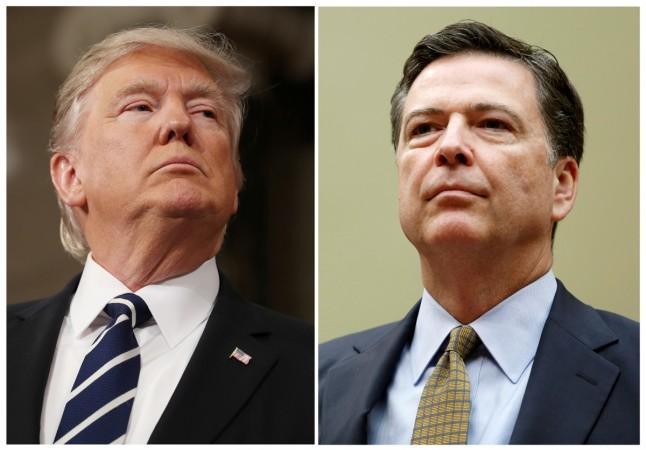
United States President Donald Trump had asked the Federal Bureau of Investigation (FBI) chief James Comey to drop his investigation into former national security adviser Michael Flynn's Russia connections, according to Washington Post reports.
The report stated that Trump instead asked Comey to investigate journalists in leak cases, Comey's associates said, who saw private notes written by the FBI chief recounting the conversation with the president.
Comey wrote some notes after a February meeting with Trump, where he stated that the president brought up counterintelligence investigation into Flynn and urged Comey to drop the probe in the wake of the national security adviser's resignation.
Flynn was asked to resign by Trump after it was revealed that the former national security adviser had concealed his Russia associations during Trump's presidential campaign. Flynn had made a phone call in late December to the Russian Ambassador Sergey I Kislya, soon after the Obama administration had imposed new sanctions on Russia for interfering with the US elections. He had initially said that the duo had just discussed scheduling matters and the sanctions against Russia were not discussed. Trump affiliates, including Pence, had backed Flynn's claims.
The conversation between Trump and Comey reportedly took place after a national security meeting. Reports state that the president had asked to speak privately to the FBI chief after others had left the room, according to Comey's associates. The associates revealed the information to The Post on condition of anonymity.
"I hope you can let this go,'' Trump said, according to the Comey's notes, which were described by the associates. The associates said that Comey had written a two-page account of the meeting which was long and highly detailed.
The revelation of their conversation's details has raised new speculation as to whether the president has crossed any legal lines into criminal behaviour by pressing the FBI chief to end a probe.
"There's definitely a case to be made for obstruction," said Barak Cohen, a former federal prosecutor who now does white-collar-defense work at the Perkins Coie law firm in the District. "But, on the other hand, you have to realize that - as with any other sort of criminal law - intent is key, and intent here can be difficult to prove."















